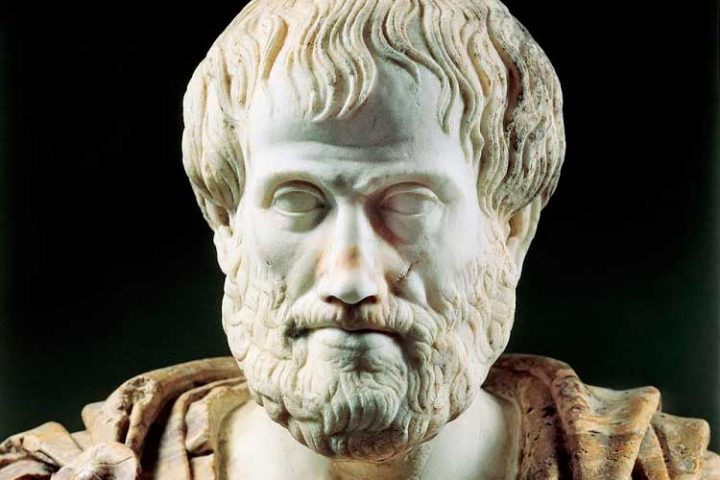When Zeno of Elea (490-430 B.C.) told us that we should live “in conformity with nature,” he was not referring at all to the postmodernist, tree-hugging habit of avoiding pollution or to the practices of not bathing or shaving, much less to the abandonment of the possibility of gaining more years of life through preventive vaccination against lethal diseases. The Stoics were interested in understanding what kind of being humans are in their particularity: What makes us unique and how do we differ from other beings, or why are we the only being that wonders about our existence?
Friedrich Nietzsche (1844-1900), in On Truth and Lie in an Extra-Moral Sense, tells us that our distinctive feature is to have invented truth (which he interprets as ” a useful error”). But the Stoics pointed out that what makes us what we are is our “social being” that has the capacity to reason.
To say that we are “social” indicates that although we can survive individually on our own, with great difficulty, prosperity is only possible within the framework of community coexistence. Through permanent contact with others, interaction, and reasoning, we can begin to understand ourselves as beings. However, the fact that we can reason does not necessarily imply that we do so in the most correct and efficient way.
Considering these two aspects of ourselves, our sociability and our ability to reason, we might slowly sketch that a “good life” is one in which we can apply reason to prosper in a community. A worthwhile human life is one in which we decide not to renounce reason to dissociate ourselves from society, but rather the opposite: no dignity is conceivable by atomizing the individual being from their collective being precisely because the prosperity of one necessarily impacts the well-being of all.
No dignity is conceivable by atomizing the individual being from their collective being precisely because the prosperity of one necessarily impacts the well-being of all
None of the above is understandable if we do not primarily address what both Aristotle and the Stoics regarded as virtue ethics, which is nothing more than the moral dimension of the individual inserted in a society that moves the completeness of his decisions through qualities that are intrinsically inherent to him: that “good life” that we have just mentioned has nothing to do with the level of consumption of goods and services, but with the endless search for a life that is inclined to authentic happiness (not only joy).
For example, for Aristotle, virtue is the foundation of the best actions and passions of the soul, which predisposes us to perform our acts correctly and conditions us to act reasonably, according to the right reason, which is possible only through a disposition that is both intellectual and moral, called prudence. The latter is responsible for reconciling our knowledge with our actions in a proportionate, that is to say, coherent manner: to do what we tell others to do and to say that we must do what we do.
It sounds like a tongue twister, but basically, it is a moral interpellation for us not to be hypocrites and to stop telling others to do things that we do not do or to do what we say is right to do.
This ethic of coherence is a way of life contrary to the so much pondered morality of double standard that imposes on others rules that are not fulfilled inside (I do not think it is necessary to give examples of this, all those who have decided to read these lines know perfectly well how it feels when people who have butlers, chauffeurs, chefs, secretaries, and various assistants, paid with contributions to the treasury, lecture us with the ethic of austerity).
In response to the question, “why do we need to read the Stoics today, in the 21st century?” it is necessary to point out that this approach shows us that we must improve as people if we intend to live in a moderately balanced society.
For the Stoics, while intellectual and moral formation is a process of reflection and individual habits, the primacy of a moral individualism that demands everything from others regardless of what one does is inconceivable. This type of reading allows us to be critical of a culture that would have us believe that any whim can become a right and no obligation is worthy of being respected in pursuit of a common good in which we try to balance the scales of unnecessary injustices, the result of the voluntary abandonment of thinking and civic and committed participation.
Now, while it is true that Epicurus (341-270 BC) placed great emphasis on the importance of friendship and relationships, his goal was basically to minimize pain in life. A quick and incorrect reading of this may indicate that Epicureans were hedonists, lovers of pleasure and libertine living, but this was not the case.
The lessons of the Stoics indicate two paths that converge in a central highway: to know ourselves fully and to exercise virtues in pursuit of a social life that, although it will never be perfect, must always tend to the common good
They were trying to avoid mental and physical pain and to achieve this, their advice was to avoid getting too involved in the public (political) thing, as social relations end up causing pain, betrayal, disappointment, and frustration (sound familiar?).
Now, as I have always maintained in almost all my writings, it is of little use to avoid pain by trying to isolate ourselves from the world when it is precisely this distancing from a society that has produced legions of idiots to govern us and cause us so much grief (remember that idiots, from the Greek ῐ̓δῐώτης (idiṓtēs), refers to the citizen who was not concerned with any public matter but only with his private pretensions and interests).
As can be seen, the lessons of the Stoics indicate two paths that converge in a central highway: to know ourselves fully, to be autonomous and self-sufficient, to train ourselves in virtues being coherent with our rational nature and, simultaneously, to exercise these virtues in pursuit of social life that, although it will never be perfect, must always tend to the common good.
The “better life” referred to by the Stoics has nothing to do with “every man for himself” but rather represents a series of guidelines for thought and conduct, an invitation to a “good life” that does not suffocate us or take away our desire to find meaning in our existence.




